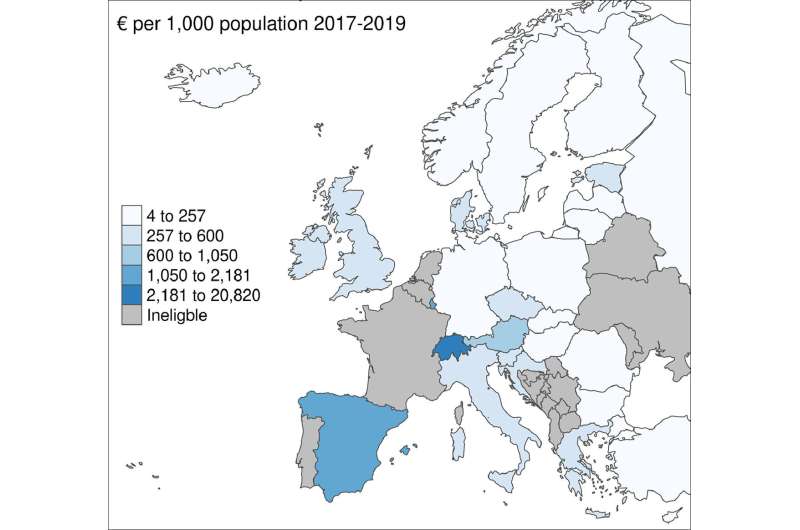This article has been reviewed according to Science X's editorial process and policies. Editors have highlighted the following attributes while ensuring the content's credibility:
fact-checked
trusted source
proofread
Worrying conflict of interest: UK health care organizations receiving payments from medical device industry

Joint replacements, pacemakers, surgical instruments, and sutures; medical devices are a staple of health care. New research published in the journal Health Policy and Technology reveals that UK hospitals, universities, and other health care organizations received over €37 million in 'education' payments from the medical device firms that supply them, sparking concerns by the report authors that a "worrying conflict of interest" is at play.
The most high-profile conflict of interest case in recent years in the UK surrounding medical devices has been vaginal mesh implants.
The report also highlights major transparency shortcomings. The recorded payments detailed in the report are expected to be just the tip of the iceberg of cash flowing between health care providers and medical device companies such as Johnson & Johnson Medical, Abbott Laboratories, and Boston Scientific. This is because it is not a statutory requirement for medical companies to disclose payments.
The authors are urging the UK government and EU governments to implement a recommendation from Baroness Cumberlege's major independent review, which will require manufacturers to disclose any financial payments and benefits in kind they offer to health care professionals and providers.
Key findings from the report:
- The study estimates payments of €425 million in 'education' payments from medical device companies reported in 53 countries between 2017 and 2019.
- The UK was ranked as the third-highest recipient of payments behind Switzerland (nearly €178 million) and Spain (nearly €86 million).
- The largest payments to UK recipients went to Guy's and St Thomas' NHS Foundation Trust and The London School of Hygiene & Tropical Medicine.
- The top 3 companies making payments are Johnson & Johnson Medical (over €184 million); Abbott Laboratories (over €44 million); and Boston Scientific (over €33 million).
- The payments are "education-related," meaning they should support the education of doctors and other health care professionals, for example through fellowships, grants, scholarships, and "educational events".
- Payments are voluntarily reported to a database run by MedTechEurope, a medical device trade body.
Dr. James Larkin, lead author from RCSI University of Medicine and Health Sciences, Dublin, said, "This is not a trivial issue. The payments reported represent a worrying conflict of interest. We know that free lunch can influence clinical practice, so this begs the question: could these payments undermine patient care?"
Dr. Piotr Ozieranski, co-author from the Centre for the Analysis of Social Policy, University of Bath, said, "If you are being fitted with a pacemaker, you trust the device has been chosen in the best interests of patient care, not because of a financial incentive. The stakes are high if this is undermined, as evidenced by the mesh implants scandal."
The authors also raise concerns about major transparency shortcomings of the MedTechEurope database.
Dr. Piotr Ozieranski said, "It is impossible for patients, journalists, policymakers, and regulators to verify if a doctor or a health care provider has a potential conflict of interest with a medical device company because the medical device companies only disclose some of their payments. Considering the vast sums of money involved, this is a major accountability and transparency issue."
"An EU mandated system of disclosure for the medical device and pharmaceutical industries could address these shortcomings and enhance transparency in the health care sector's interactions with industry."
Dr. James Larkin said, "The study is likely the tip of the iceberg on the money that's changing hands in the UK because medical device firms only seem to be disclosing a small proportion of their payments. Compare the €37 million reported by medical companies with the €2.96 billion reported by the pharmaceutical industry, which has greater transparency "
In 2009, an Institute of Medicine report said conflicts of interest "threaten the integrity of scientific investigations, the objectivity of medical education, the quality of patient care," and may also "jeopardize public trust in medicine."
More information: James Larkin et al, Payments to healthcare organisations reported by the medical device industry in Europe from 2017 to 2019: An observational study, Health Policy and Technology (2024). DOI: 10.1016/j.hlpt.2024.100865





















